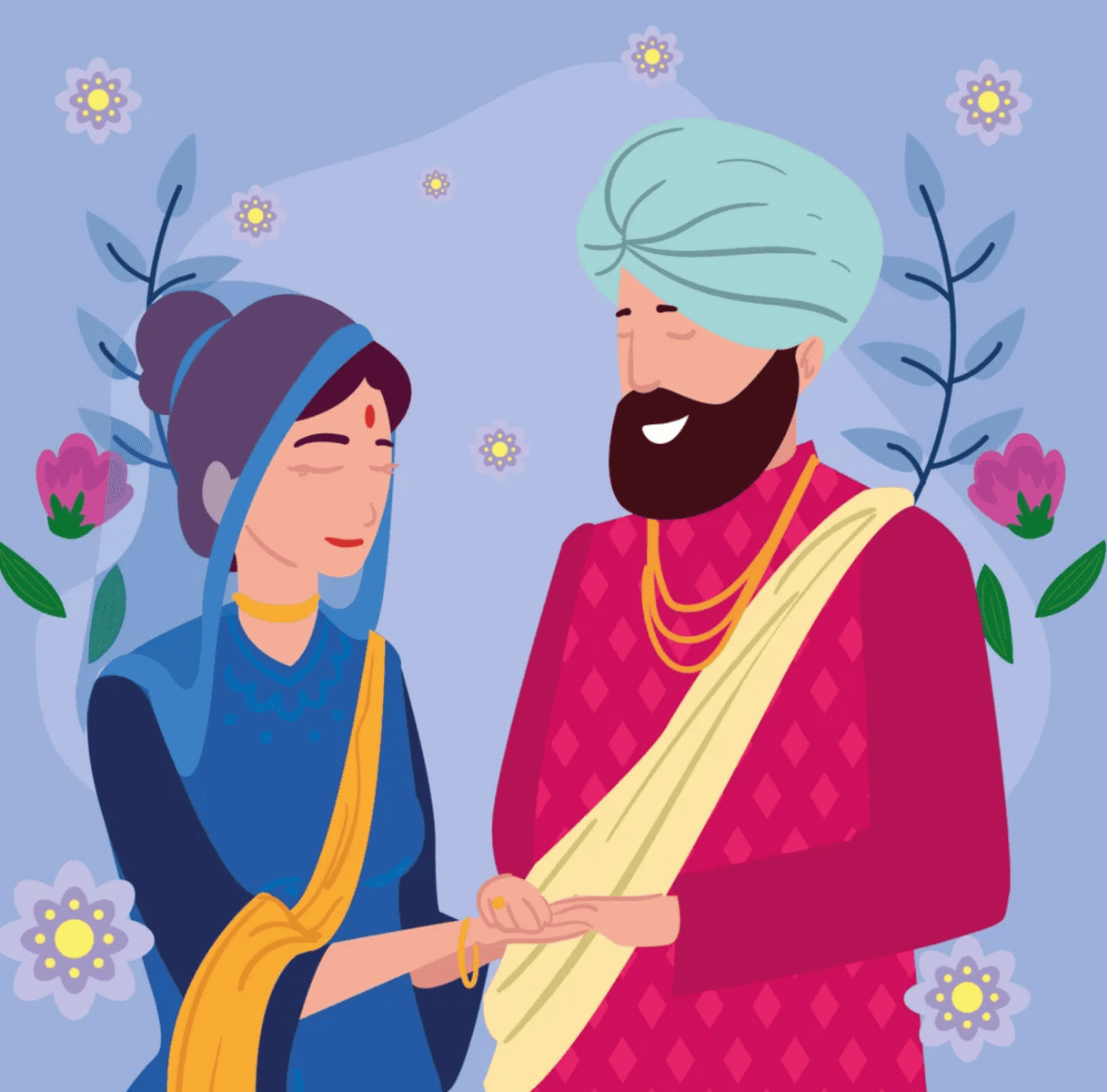A Comprehensive Guide to Marriage & Divorce Process in Bangladesh
In the diverse tapestry of Bangladesh, marriage and divorce processes are intricately woven into the fabric of religious and secular laws. This article sheds light on the Muslim-Hindu divorce processes and associated costs in Bangladesh, offering a comprehensive guide for individuals navigating the realms of matrimony and separation.
Muslim Marriage Process in Bangladesh:
The following are the necessary conditions for a lawful Muslim marriage:
- A minimum of two witnesses are required, and a female witness will be counted as one male is equal to two females.
- The partners to the marriage must be Muslim or Kitabia, of sound mind, and of legal age. According to the Child Marriages Restraint Act of 2017, the female or bride must be 18 years old, and the male or groom must be 21 years old.
- The marriage must be registered under the Muslim Family Laws Ordinance 1961.
- Both parties must freely and voluntarily consent.
- Dower money or ‘Denmahar’ must be decided by the guardian of the parties or the parties to the marriage.
Fees for Marriage Registration:
The government has established marriage registration costs that are consistent with dower money, such as:
- For each BDT 1000/= (One Thousand Taka) of dower money, the cost is BDT 12.50/= (Twelve Taka and Fifty Paisa).
- For each BDT 1,00,000/= (One Lac Taka) of dower money, the cost is BDT 1250/= (One Thousand Two Hundred and Fifty Taka).
- After BDT 4,00,000/= (Four Lac Taka) of dower money, the charge is BDT 100/= (One Hundred Taka).
- MARRIAGE OF INTERFAITH
The Special Marriages Act of 1872 recognizes marriages between people of various religions.

Marriages may be celebrated under this Act between persons who do not profess Christian or Jewish, Hindu or Muslim, Parsi or Buddhist, Sikh or Jaina religions, or between persons who do profess one or more of the following religions, namely, Hindu, Buddhist, Sikh or Jaina religions, subject to the following conditions:
(1) Neither partner must have a live husband or wife at the time of the marriage:
(2) The man must have reached the age of eighteen, and the lady must have reached the age of fourteen, according to the Gregorian calendar:
(3) Each party must have gained the approval of his or her father or guardian to the marriage if he or she has not reached the age of twenty-one years:
(4) The parties must not be related to each other in any degree of consanguinity or affinity that would render a marriage between them invalid under any legislation to which each of them is subject.
NOTICE PRIOR TO MARRIAGE
One of the parties must send written notification to the Registrar in advance of the marriage. The Registrar to whom such notice is provided must be the Registrar of a district in which one of the parties to the marriage has resided for at least fourteen days prior to the date of such notification.
APPLY FOR A DECLARATION FORM:
Before the marriage is solemnized, the parties and three witnesses must sign a declaration in the form prescribed in the second schedule to the Special Marriage Act of 1872 in the presence of the Registrar. If either partner is under the age of twenty-one, the declaration must also be signed by his or her father or guardian, unless the person is a widow, and it must always be countersigned by the Registrar.
DIVORCE PROCESS IN BANGLADESH:
Divorce, in general, refers to one of the legal dissolutions of a material bond between people who meet the legal requirements.
MUSLIM MARRIAGE DIVORCE:
TALAQ:
The provisions of the Muslim Family Law Ordinance, 1961 state that-
(1) Notice to Chairman: Any man who desires to divorce his wife must notify the Chairman in writing of his intention to do so as soon as possible after the pronouncement of Talaq in any form whatever, and must provide a copy to the wife.
(2) Penalty for Default: Anyone who violates the provisions of sub-section (1) is punishable by simple imprisonment for a term of up to one year or a fine of up to ten thousand takas, or both.
(3) Iddat Period: Save as stated in subsection (5), a Talaq unless withdrawn sooner, expressly or otherwise, shall not be effective until the expiration of ninety days from the day on which notice under sub-section (1) is sent to the Chairman.
(4) Formation of Arbitration Council: Within thirty days of receiving notice under sub-section (1), the Chairman shall convene an Arbitration Council for the purpose of bringing about reconciliation between the parties, and the Arbitration Council shall take all steps necessary to accomplish this.
(5) Pregnancy: If the wife is pregnant at the time Talaq is pronounced, Talaq must not be effective until the period indicated in subsection (3) or the pregnancy, whichever be later, ends.
(6) Re-marriage of Wife: Nothing in this section prohibits a wife whose marriage has been terminated by Talaq effective under this section from re-marrying the same husband without an intervening marriage with a third-person, unless such termination is for the third time such termination is effective.
Divorce By Wife in Bangladesh:
According to the Muslim Family Laws Ordinance, 1961, where the right to divorce has been duly delegated to the wife and she wishes to exercise that right, or where any of the parties to the marriage wishes to dissolve the marriage other than through Talaq, the provisions of Talaq shall apply, mutatis mutandis and to the extent applicable.
On the other hand, the terms of the Dissolution of Muslim Marriages Act of 1939 provide that-
A woman married under Muslim law has the right to request a ruling for the dissolution of her marriage on any of the following grounds:
that the husband’s whereabouts have been unknown for four years; that the husband has neglected or failed to provide for her maintenance for two years; that the husband has been sentenced to imprisonment for a period of seven years or more; that the husband has failed to perform, without reasonable cause, his marital obligations for three years; that the husband was impotent at the time of the marriage and continues to be Provided, however, that the marriage has not been consummated; and that the husband treats her with cruelty, that is,

(a) habitually assaults her or makes her life miserable by cruel conduct, even if such conduct does not amount to physical ill-treatment, or
(b) associates with women of evil repute or leads an infamous life, or
(c) attempts to force her to lead an immoral life, or (d) disposes of her property or prevents her exercising her legal rights over it
Provided, however, that-
(a) no decree shall be passed on the ground (iii) until the sentence has become final; (b) a decree passed on the ground (i) shall not take effect for a period of six months from the date of such decree, and if the husband appears within that period, either in person or through an authorized agent, and satisfies the Court that he is prepared to perform his conjugal duties, the Court shall set aside the said decree;
Divorce in a hindu Marriage in Bangladesh
There is no explicit rule in Bangladesh governing the termination of Hindu marriages. Hindus regard their marriage as a holy union that creates a divine bond that cannot be broken.
Nonetheless, divorce in Hindu marriage is feasible and occurs. However, a Hindu married woman may exercise this right only if she is virtuous and has not changed her religion, or if she obtains the right with adequate cause to comply with a ruling of a competent Court for the return of conjugal rights.
According to the terms of the Hindu Married Women’s RIGHT TO SEPARATE RESIDENCE AND MAINTENANCE ACT, 1946, a Hindu married woman can seek separation from her husband and apply for maintenance from him if she meets certain criteria, which are as follows:
- If he has a dreadful ailment that he did not get from her;
- If he is cruel to her in such a way that it is unsafe or undesirable for her to live with him;
- If he is found to be guilty of desertion, that is, abandoning her without her consent or against her will;
- If he marries once more;
- If he abandons Hinduism and converts to another religion;
- If he keeps a concubine in the house or lives with a concubine on a regular basis;
- For any other legitimate reason.
CHRISTIAN MARRIAGE DISSOLUTION
According to the requirements of the Divorce Act of 1869, it is stated that-
Any husband may petition the District Court or the High Court Division to dissolve his marriage on the grounds that his wife has committed adultery since the marriage was solemnized.
Any wife may ask the District Court or the High Court Division to dissolve her marriage if her husband has swapped his Christian profession for another religion and entered into a form of marriage with another woman;
- Or has committed incestuous adultery,
- Or of bigamy coupled with adultery,
- Or of adultery in marriage to another woman,
- Or of rape, sodomy, or bestiality, for that matter.
- Or of adultery mixed with such cruelty that, in the absence of adultery, she would have been entitled to a divorce mensa et toro,
- Or of adultery and desertion without good justification for two years or more.
Marriage Nullity
Following that, a district judge may issue a decree for divorce nisi, subject to confirmation by the High Court Division. If any of the following situations exist, either the District Judge Court or the High Court may issue a decree of nullity of marriage:
(i) that one of the parties is impotent; (ii) that the parties have a prohibited degree of consanguinity or affinity; (iii) that either party was insane at the time of marriage; and (iv) that either party’s former husband or wife was living at the time of marriage, and such marriage was then in force.
II. Marriage in Bangladesh
A. Muslim Marriage

Essential Conditions:
- Presence of a minimum of two witnesses.
- Parties must be Muslim or Kitabia, sound-minded, and adult.
- Minimum age: 18 for females, 21 for males.
- Marriage registration under Muslim Family Laws Ordinance 1961.
- Free and voluntary consent by both parties.
- Dower money (Denmahar) decided by the guardian or parties.
Marriage Registration Fees:
- BDT 12.50 for each BDT 1000 of dower money.
- BDT 1250 for each BDT 1,00,000 of dower money.
- BDT 100 after BDT 4,00,000 of dower money.
B. Interfaith Marriage
- Recognized under the Special Marriages Act of 1872.
- Conditions include no living spouse, age requirements, consent, and no prohibited relationship.
- Notice before marriage to the Registrar.
- Signing a declaration form with parties and three witnesses.
III. Divorce Process in Bangladesh
A. Muslim Marriage Divorce (Talaq)
Talaq Procedure:
- Notice to Chairman: Inform Chairman in writing immediately after pronouncing Talaq.
- Penalty for Default: Violation leads to imprisonment or fine.
- Iddat Period: Talaq effective after 90 days, reconciliation attempts during this period.
- Formation of Arbitration Council: Chairman constitutes a council for reconciliation.
- Pregnancy: Talaq not effective until Iddat period or pregnancy ends.
- Re-marriage of Wife: Permitted without an intervening marriage unless the termination is for the third time.
Divorce by Wife:
- Delegated right under Muslim Family Laws Ordinance 1961.
- Grounds specified in the Dissolution of Muslim Marriages Act of 1939.
B. Hindu Marriage Dissolution
- No specific law for Hindu marriage dissolution.
- Separation possible based on criteria under the Hindu Married Women’s RIGHT TO SEPARATE RESIDENCE AND MAINTENANCE ACT, 1946.
C. Christian Marriage Dissolution
- Governed by the Divorce Act of 1869.
- Grounds for dissolution include adultery, conversion, incestuous adultery, bigamy with adultery, marriage with another woman with adultery, rape, sodomy, bestiality, cruelty, or adultery coupled with desertion.
IV. Nullity of Marriage
- District judge may pass a decree for dissolution of marriage nisi.
- Grounds for nullity include impotence, prohibited degree of consanguinity or affinity, insanity at the time of marriage, and existence of a living former spouse.
Marriage and divorce processes in Bangladesh reflect a harmonious blend of religious and secular laws. Individuals embarking on these journeys must navigate the legal landscape with due diligence. This comprehensive guide serves as a compass, providing insights into the diverse aspects of matrimony and divorce in the cultural mosaic of Bangladesh. As legal frameworks evolve, Dewey Leboeuf stands as a pillar of support, offering expertise to those seeking guidance on these significant life events.







0 Comments